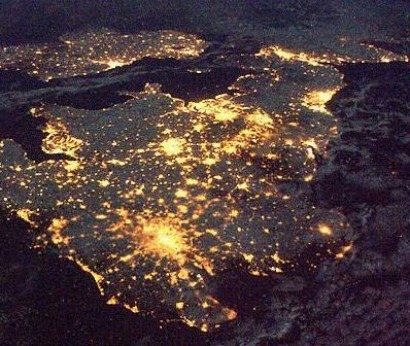
A 2010 report from Ofgem expressed "reasonable doubt" about the future of Britain's energy supply beyond 2015, with group chief Alistair Buchanan describing the situation as "profound and worrying" and calling for a change in the way that energy is bought.
The problem stems from reliance on North Sea natural gas and coal, which back in 2009, made up nearly three-quarters of the UK's energy supply. However, production of natural gas has slowed significantly, while the UK will be obliged to close some coal power stations to meet European carbon targets for 2015. Then there is nuclear power, with the UK currently operating nine plants. However, by 2018 this will be down to six.
When faced with the impending energy crisis, the coalition government threw its weight behind nuclear power, despite many other developed nations shying away from it, having witnessed the devastation caused by the reactor meltdown at the Fukushima plant in Japan in March 2011. However, the £15 billion Horizon project, which would see nuclear reactors built at Wylfa in North Wales and Oldbury-on-Severn, Gloucestershire, was recently thrown into chaos when the corporate backers, RWE npower and E. ON, pulled out. While the government scrabbles around for new backers for the Horizon project, calls have come in for ministers to focus future energy policy on sustainable systems that will ease the energy crisis and help drive the stagnant UK economy.
According to Alan Simpson, retired Nottinghamshire MP and Friends of the Earth consultant, it is the business aspect of the situation that will drive the green energy movement. As part of the Premierline Direct Future of Business report, he explained: "Energy and transport prices will rise inexorably, unless we shift into new, sustainable energy systems. You have to be willing to bust open the current energy market and its domination by the cartel of major energy companies.
"Food security, energy security and water management will become central economic and political issues in the years ahead. Pro-business policies will recognise this and come up with mechanisms for favouring local and regional markets that can demonstrate a low and sustainable carbon footprint."
Mr Simpson's comments have been echoed by foreign secretary William Hague, who, in a recent letter to ministers, said that the government must provide more backing for the green industries in order to drive economic growth and help the UK protect itself from volatility in the energy markets. "I believe we should reframe our response to climate change as an imperative for growth rather than merely being a way of being green or meeting environmental commitments," he explained.
But what are the options for green energy in the UK? One of the options being pushed by the government is biomass, which involves the burning of wood pellets. It is claimed that by using wood from sustainable forests makes it a reliable renewable energy source, as the carbon released from the wood is offset by planting new trees. But many environmental groups disagree with the government on what the overall impact on the environment is, particularly when the UK does not have a sufficient supply of its own sustainable forests and has to source wood from countries which have not signed up to the Kyoto environmental agreement. Wind power, meanwhile, has the backing of environmentalists, but government ministers are reluctant to back the creation of more windfarms for fear of upsetting constituents, many of whom object to having large turbines placed in places of natural beauty. One solution recently put forth is the idea of off-shore floating turbines, but this is still at the preliminary stage.
Perhaps the best option for moving towards a greener energy future if providing further support for the government's Green Deal. This scheme aims to encourage individuals and businesses to generate their own renewable energy through the use of solar panels and other green technology by paying a tariff for any surplus energy supplied to the National Grid. However, the popularity of the scheme has been such that the government is trying desperately to scale-back the size of the tariff being paid out. But with the supply crisis looming, the government's current energy plans are clearly in need of a rethink.
For additional information:

